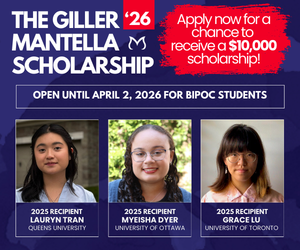Addressing the gap in academic professionalization for graduate students
Academic support units have an important role to play in the professionalization of graduate students.

Graduate professional development programming has experienced significant growth over the past decade. Even a cursory look at the graduate professional development websites at universities across Canada shows a great many initiatives, some of which are now well established. This growth is of course welcome, given that graduate-focused resources help both institutions and graduate students reimagine the potential contributions of graduate studies outside academia.
With this growth, however, comes a potentially problematic byproduct: the overemphasis on career preparation for non-academic positions. While this approach has helped many graduate students find their way into meaningful and rewarding careers, the emphasis on career readiness over academic professionalization has consequences. We are at an inflection point, and we should be considering whether our current framework is sufficiently supporting all graduate students.
Back in 2012, the Social Sciences and Humanities Research Council commissioned a survey of graduate professional development on Canadian campuses. The report’s author, Marilyn Rose, indicated that while “academic skills areas (i.e. in the areas of research and teaching development)” were “highly developed on most campuses,” resources for improving transferable skills tended to represent a smaller proportion of offerings.
This assessment from 2012 shows that we’ve come a long way. This prognosis, however, is indicative of the common view that graduate professional development involves two distinct sets of skills: academic and transferable.
This binary, whether established as a practical way to divide tasks between different groups on campus or as a well-intentioned effort to support the transition of graduate students out of academia and into the broader job market, has led to the development of professional development resources that are not always responsive to the holistic needs of graduate students.
As a result, graduate professional development continues to develop based on the assumption that academic professionalization is done at the department level and therefore we don’t need to devote too much time trying to develop resources elsewhere.
While I do think this assumption is at least partly valid, it nevertheless misses an important aspect of department-level professional development activities: they tend to be narrow in focus. Professional development happening within disciplines tends to focus on the discipline itself; its future within academia, its needs, its requirements, its assumptions about what the world outside of academia needs, its unwritten and unspoken rules, and so on. It thus tends to neglect the professional skills of individuals, their needs and aspirations. These individual needs are seen as the responsibility of centralized, de-disciplined graduate professional development units.
Evolving beyond the sole focus on generalized career training could be achieved through discipline-integrated professional development units. These reimagined units could be formed by bringing together professional development experts who come from diverse academic backgrounds, working together in a centralized service unit. This staffing model could organically incorporate academic professionalization without suffering from the limitations that exist in academic departments which are very good at “training the next generation of academics” (those who conduct research) but less effective at training professionals “with academic backgrounds” (those who can thrive as academics). We should also remember that academic departments have a lot on their plate already, so it would neither be fair nor practical to add yet another substantial task to their responsibilities.
The model that I’m proposing lines up with the breakdown of graduate professional development proposed by Rachael Cayley. In a post from 2016, Dr. Cayley discusses how she understands graduate professional development as being centred around “professional development” and “professionalization.”
“My anecdotal sense from my own university,” she writes, “is that professional development tends to be offered centrally while professionalization initiatives are coming out of departments themselves.” In this context, “professional development” refers to skill development undertaken by the individual, an activity that happens outside the department whereas “professionalization” refers to skills related to the field of study and typically offered by departments.
Refining this breakdown further, Dr. Cayley provides definitions of three key categories of skills:
- Integral: skills necessary to succeed in an academic program such as writing effectively, presenting, and communicating research to different audiences
- Professional academic: skills needed to succeed on the job market such as teaching, publishing, and applying for funding
- Professional non-academic: skills needed to succeed in securing professional positions outside of academia
What we need is to discard the assumption that the skills described as “professional academic” are being addressed at departments across the board and support units should therefore continue to focus on “professional non-academic” skills and to a lesser degree on “integral” ones.
If we need to enhance centralized offerings that target professional academic skills, what would that look like in concrete terms? At my institution, for instance, we have a unit called Teaching and Learning Services. Part of this unit’s mandate is to offer teaching supports to all those who teach, including graduate students. Even though some academic departments offer their graduate students skill development in teaching, there is still a need for a centralized unit that focuses on that work, reaches everyone, and cuts across disciplines to distill those competencies related to teaching as such. In the past couple of years, we also had a colleague who offered workshops and individual consultations on navigating the academic job market. I’ve also been slowly developing support tools on academic grant writing and hope to continue doing so over the coming year or two. Other low-hanging fruit include preparing articles for publication, effective editing, managing the writing process, presenting at conferences, and citation management.
The key point is this: as professionals working in support units, we should think of ourselves as having an important role to play in the academic professionalization of graduate students. We should ask for the time and resources needed to develop these resources. Doing so would help us deal with the “overcorrection” that resulted from the growth of non-academic professional development resources. It would also help us overcome the assumption that professional development at the graduate level is, by its very nature, a bifurcated business, one based on an artificial distinction between academic and non-academic competencies.
Featured Jobs
- Soil Physics - Assistant ProfessorUniversity of Saskatchewan
- Canada Impact+ Research ChairInstitut national de la recherche scientifique (INRS)
- Human Rights - Assistant Professor (Expertise in Peace & Conflict Studies, Socioeconomic Rights and/or Indigenous Rights)University of Winnipeg
- Human Rights - Assistant Professor (Expertise in Human Rights related to Artificial Intelligence and Digital Security)University of Winnipeg
- Director of the McGill University Division of Orthopedic Surgery and Director of the Division of Orthopedic Surgery, McGill University Health Centre (MUHC) McGill University

















Post a comment
University Affairs moderates all comments according to the following guidelines. If approved, comments generally appear within one business day. We may republish particularly insightful remarks in our print edition or elsewhere.
1 Comments
Thank-you, Dr. Karim Abuawad, for this article. I agree that professional development at the graduate level is not a bifurcated business. The idea of an “overcorrection” – are there any data to support this? As an expert in this field, the curricular professional development programming we deliver at our faculty, is one that nurtures and empowers graduate students with scientific thought leadership, for any career within academia or otherwise. With the development of the three skills which Dr. Cayley mentions above and a rich professional network, a newly minted graduate student is prepared for any path, regardless of the industry or institute they take their research. Thank-you for your ideas and being part of this space!